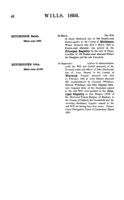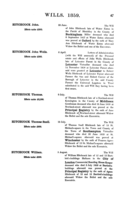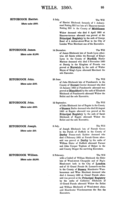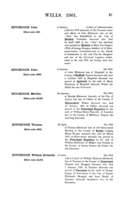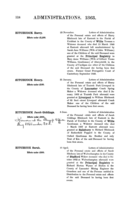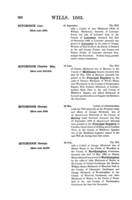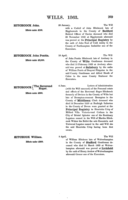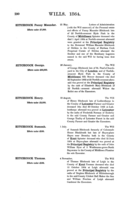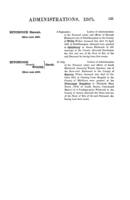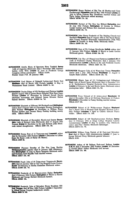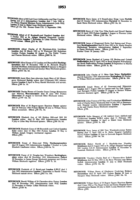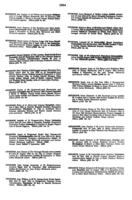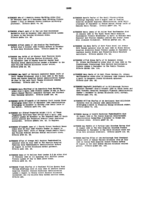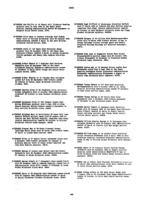Probates
The following page contains a set of British probate records for the surname "Hitchcock" from the 1858 to 1866, including variants such as "Hitchcox".
Entries stating "Probate" or "Wills" mean that the deceased left a last will and testament. The person(s) named as the probate are those given the "grant of representation", which gives them the legal right to deal with the deceased's property, money and possessions (known as their "estate"). If a will was left, the deceased will usually have specified the person(s) they wish to execute their will.
Entries which state "Administration" mean that no will was left. In this case, a court will normally grant a letter of administration to a surviving spouse or the next of kin, who will be named as the probate.
In general, the lack of a probate entry for an individual implies that they probably died leaving only a small amount of personal effects. For example, there is no probate record for Alfred Hitchcock's father William who died in 1914 — he most likely died without leaving many assets to his wife and children.
See also:
- Last Will and Testaments of members of the extended Hitchcock family.
1850s
1860s
1950s
1960s
